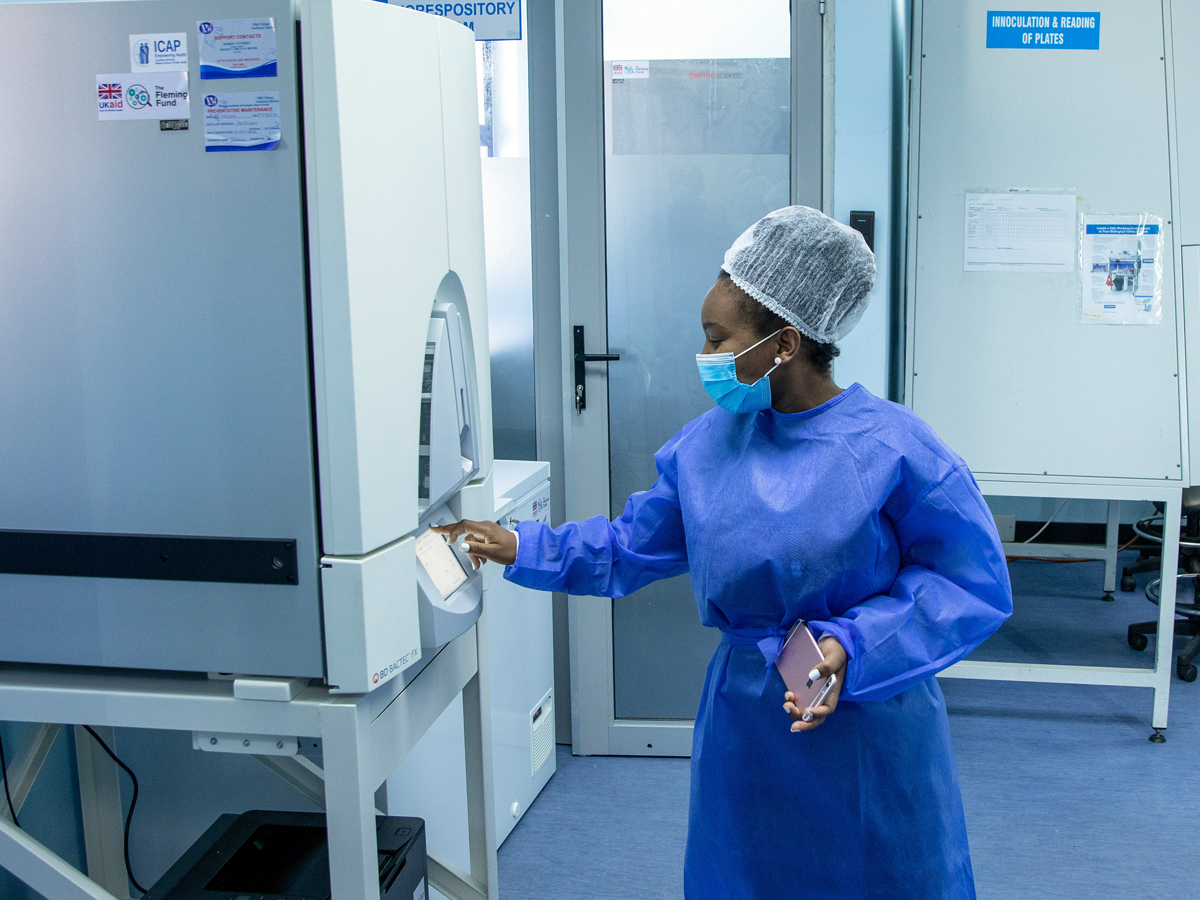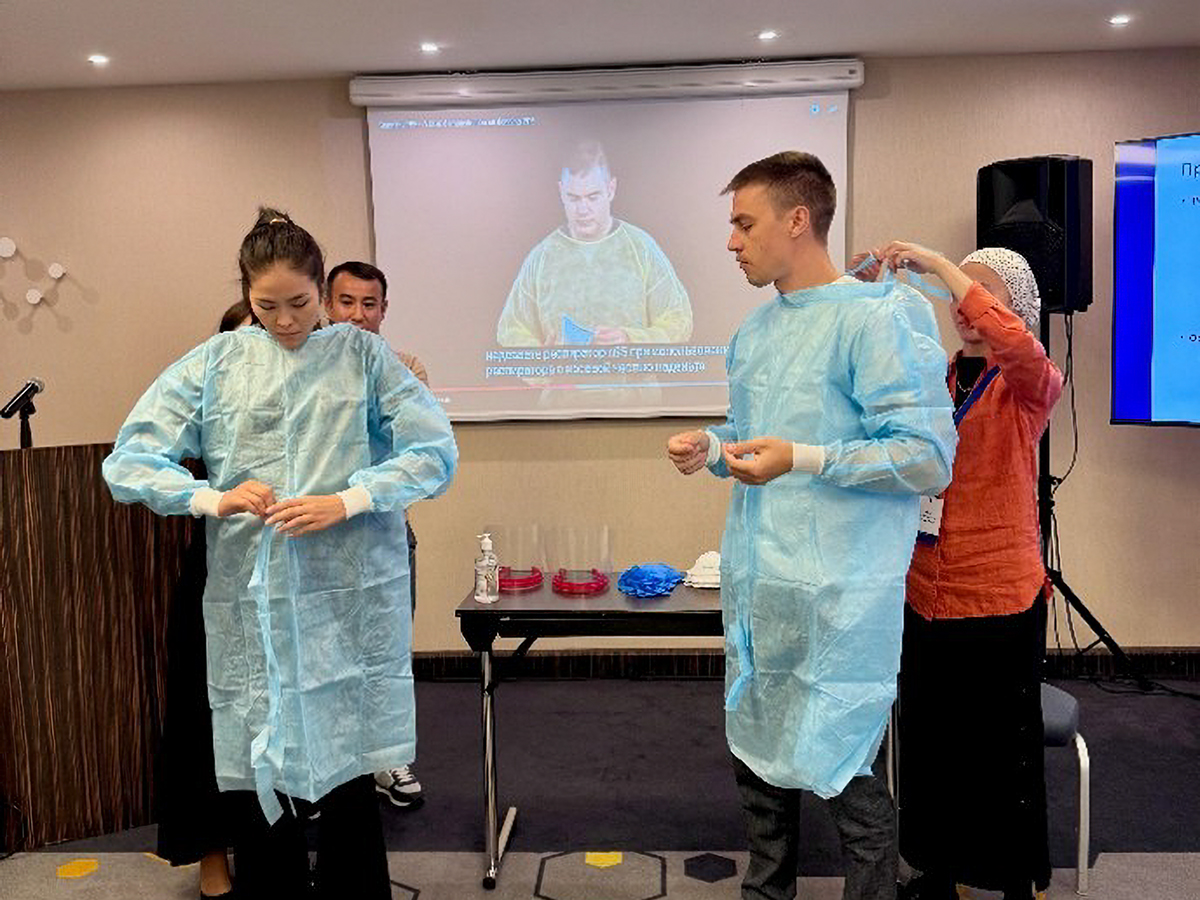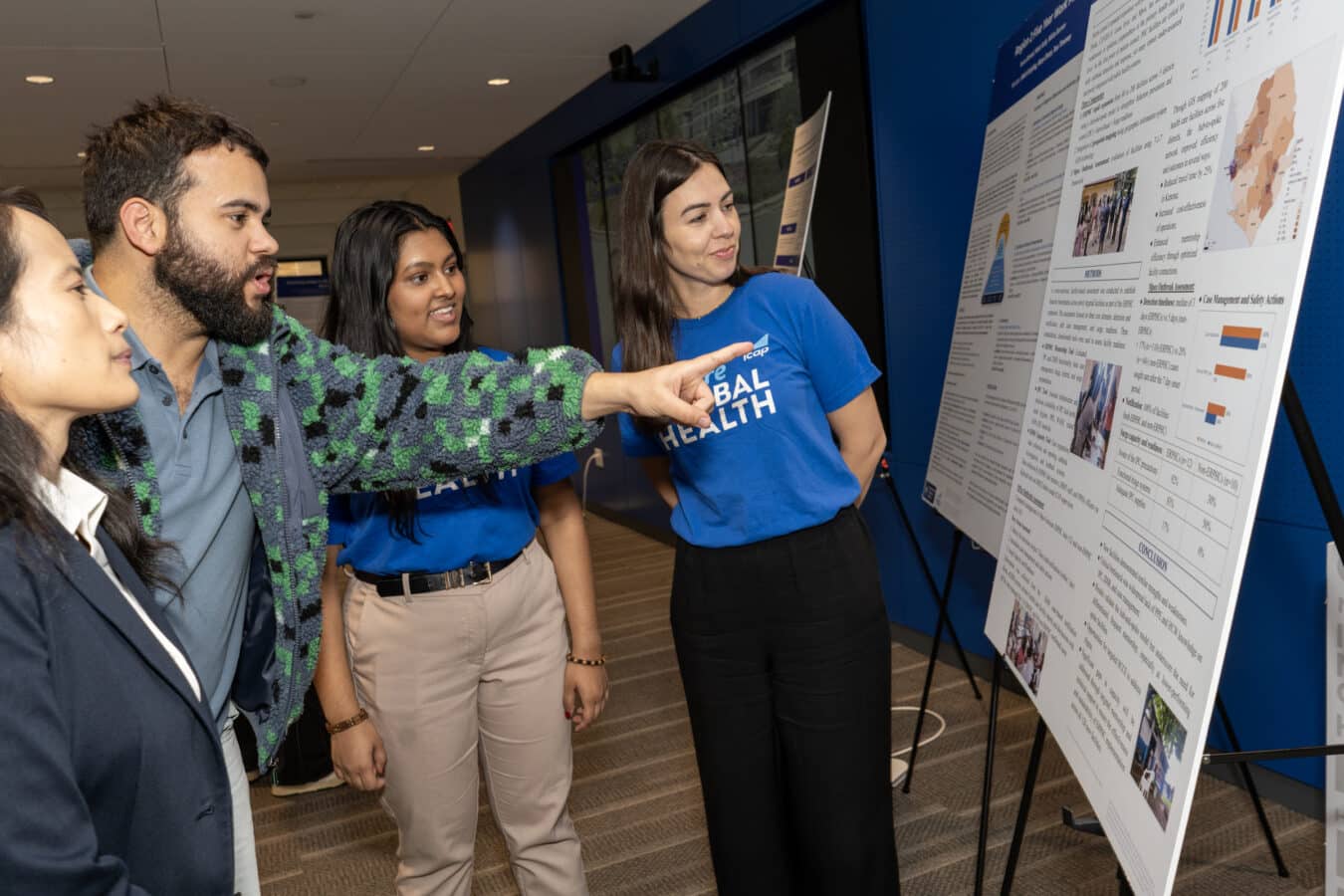An estimated 15,000 children under the age of 15 are currently living with HIV in South Sudan, but only 11 percent of those in need of lifesaving antiretroviral therapy (ART) are receiving it. While low rates of ART coverage among children living with HIV can be attributed to several factors, the national health system’s reliance on lopinavir/ritonavir (LPV/r) as the standard regimen for pediatric HIV has played a significant part in this underperformance.
In 2022, thanks in part to ICAP’s advocacy efforts on the issue, South Sudan’s Ministry of Health began recommending the use of pediatric dolutegravir (pDTG) for treating children living with HIV, in line with World Health Organization’s recommendations. Not only do dolutegravir-based regimens have a superior safety profile to LPV/r, pTDG does not have the unpleasant, bitter taste that can cause young children to avoid taking it, causing issues with adherence.
“Pediatric dolutegravir is a more forgiving regimen, which, in children, is very important because we know that it can be very hard to get every dose down,” explained Susan Michaels-Strasser, PhD, MPH, RN, FAAN, senior director of Human Resources for Health Development at ICAP. “It is hard to get young children especially to take medication, so when you have to provide medication, you want to make sure it is as effective as possible.”
ICAP supported the country’s transition to pDTG along every step of the way, beginning with advocacy on the importance of the change despite the large amounts of available LPV/r the government would have to dispose of. ICAP developed standardized training and reference materials on pDTG to train health care workers and distributed job aids and other communication materials to help providers counsel parents and caregivers about the benefits of the new medication and then prescribe the appropriate doses for their patients.
Grace* — a two-year-old girl who had contracted HIV through birth — had been on an LPV/r regimen since the age of six months, but her viral load remained unsuppressed. Despite her best efforts, Grace’s mother struggled to give the child her medicine because she did not like the taste.
ICAP worked with the Ministry of Health to generate a list of children living with HIV who, like Grace, were eligible for the transition, and then, in close collaboration with facility appointment-reminder teams and community volunteers, located and reached out to the children and their families. Excel-based tools were developed and used to monitor weekly progress with the transition, including pDTG initiation for newly diagnosed children. Finally, providers at all ICAP-supported facilities were trained to help parents and caregivers better administer the medication to their children, adhere to the regimen, and, when the time is right, talk to them about their HIV diagnosis.
On April 20, 2022, Grace became the first child in South Sudan to transition to pDTG as a result of ICAP’s efforts, marking a promising new milestone in treating children living with HIV in South Sudan. Eight months later, her viral load test returned suppressed. She continues to take her medication, maintains a healthy weight for her age, and does not suffer from any opportunistic infections.
Since Grace, more than 1,800 children have transitioned to or been initiated on pDTG in all 69 health facilities supported by ICAP in South Sudan. This has already led to a measurable increase in viral load suppression, from 56 percent to 65 percent, among children 1–4 years old living with HIV in South Sudan. Children 5–9 years old have also seen an increase in viral load suppression, from 69 percent to 72 percent, as of December 2022. Almost all children accessing their treatment in the 69 facilities have transitioned to pDTG, with the goal of ensuring that viral load suppression is achieved and sustained in at least 99 percent of children on pDTG in the ICAP program.
Our experience with dolutegravir-based antiretroviral regimen for children living with HIV in South Sudan is testimony that it is indeed a superior regimen,” says Ogochukwu Ginigeme, MPH, senior care and treatment advisor for ICAP in South Sudan. “Now we have a big opportunity to close the gap in viral load suppression between children and adults living with HIV, and we are thankful to all stakeholders that have made it possible.”
*Not her real name.
About ICAP
A major global health organization that has been improving public health in countries around the world for two decades, ICAP works to transform the health of populations through innovation, science, and global collaboration. Based at Columbia Mailman School of Public Health, ICAP has projects in more than 40 countries, working side-by-side with ministries of health and local governmental, non-governmental, academic, and community partners to confront some of the world’s greatest health challenges. Through evidence-informed programs, meaningful research, tailored technical assistance, effective training and education programs, and rigorous surveillance to measure and evaluate the impact of public health interventions, ICAP aims to realize a global vision of healthy people, empowered communities, and thriving societies. Online at icap.columbia.edu








